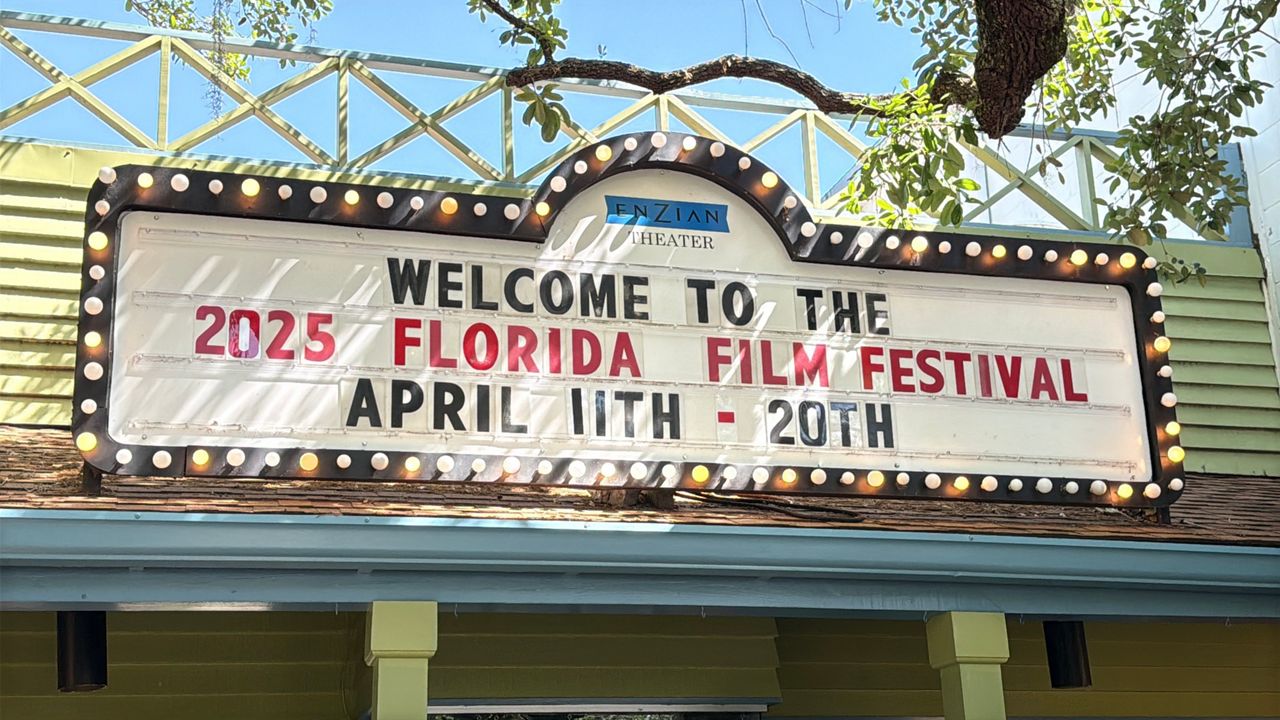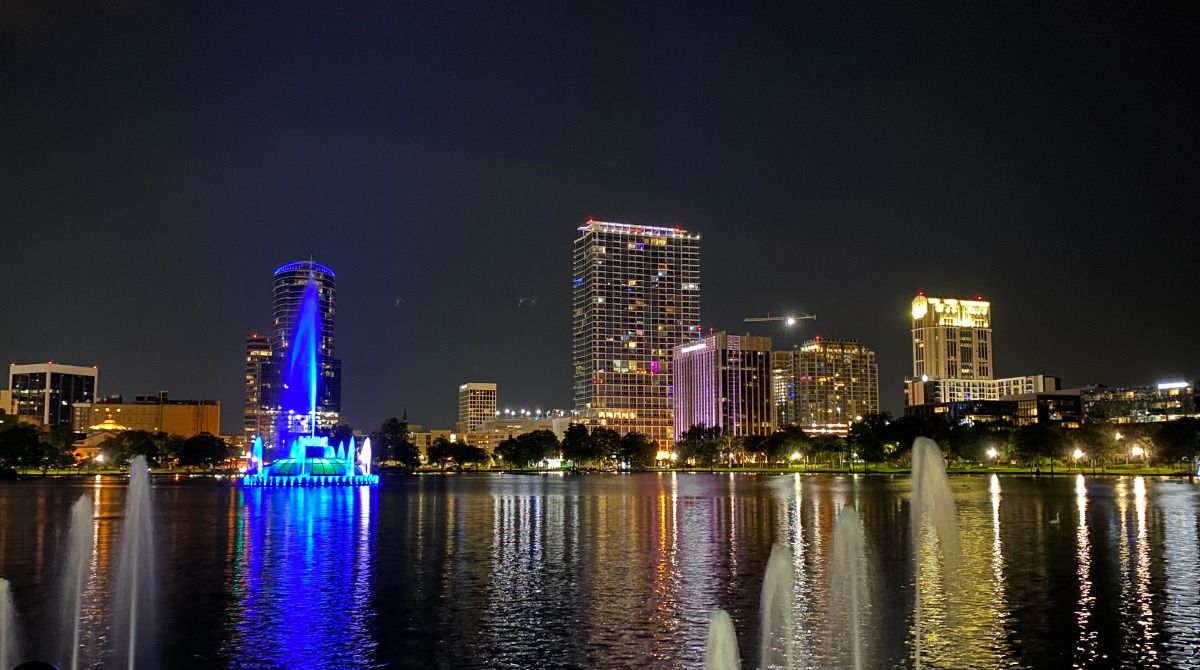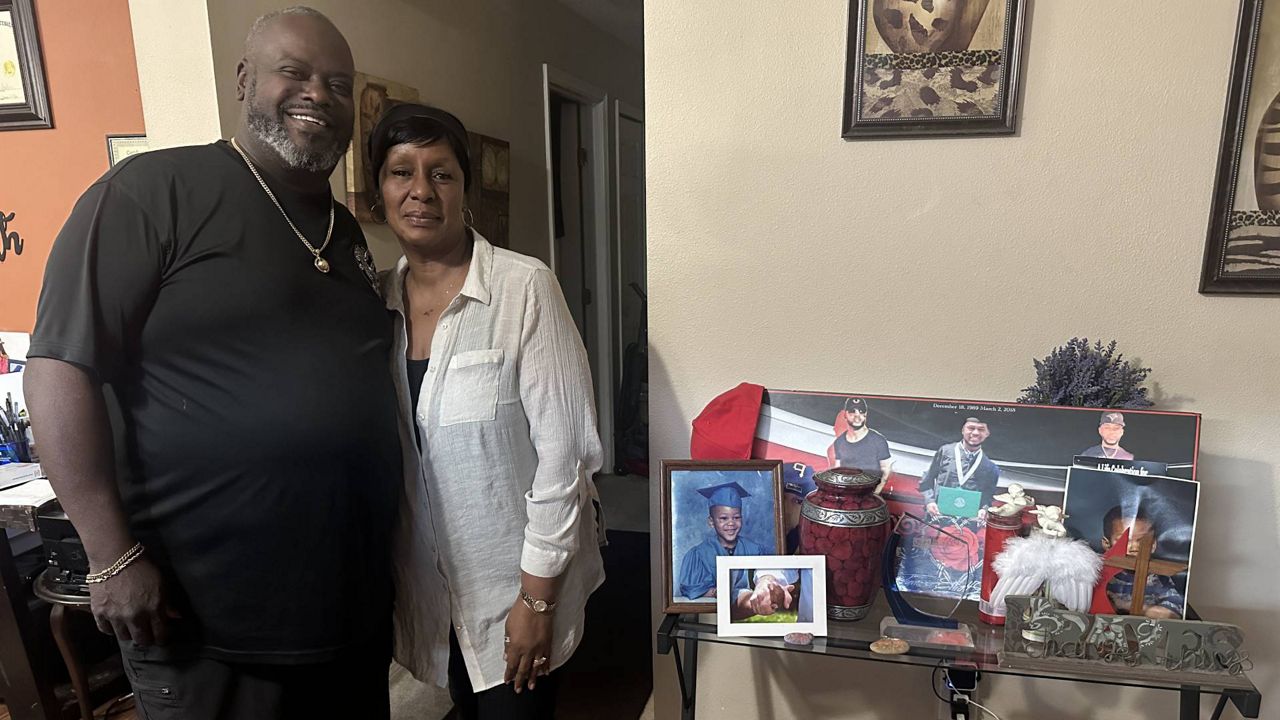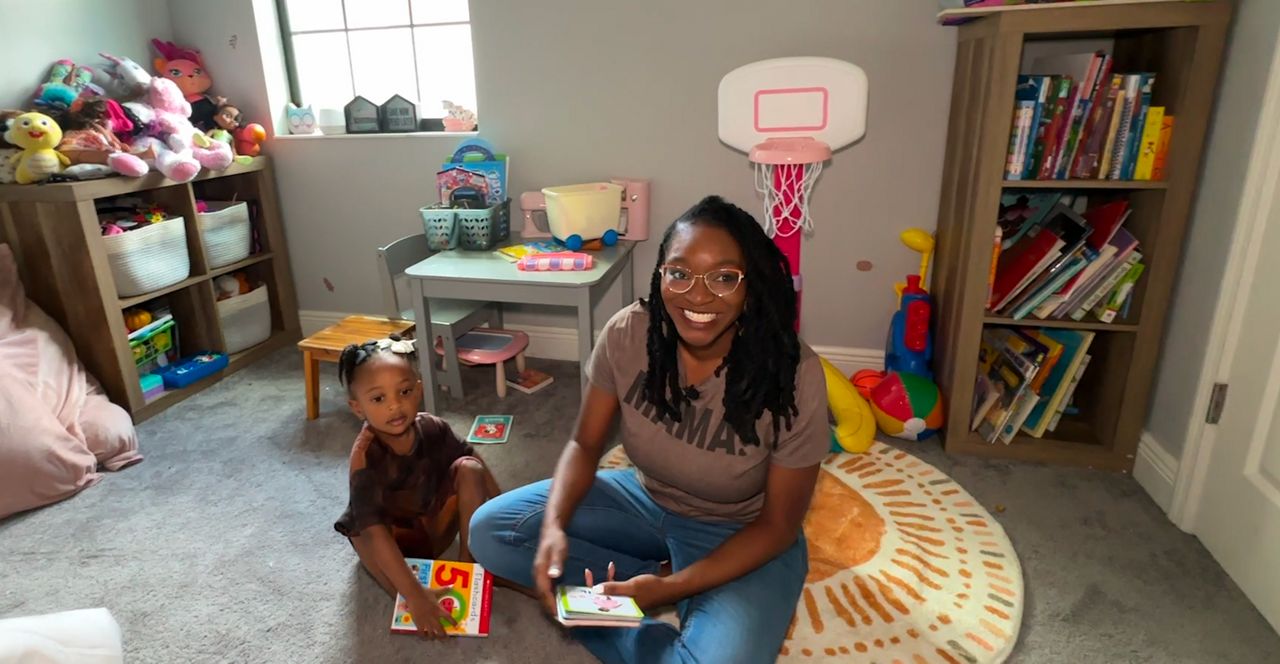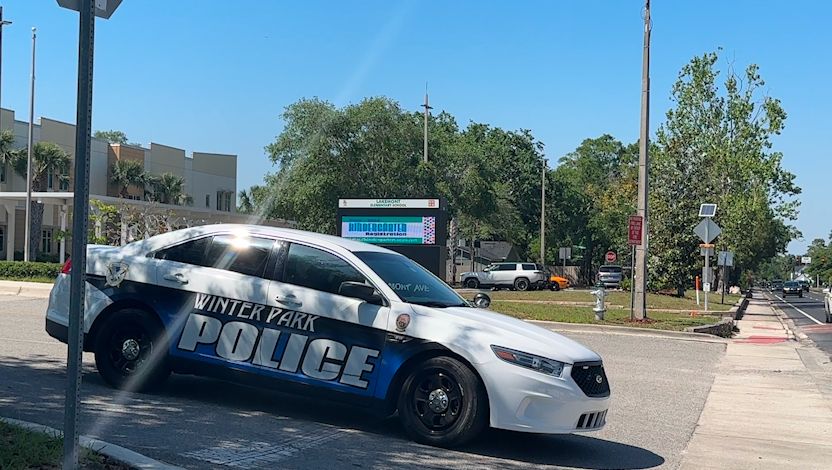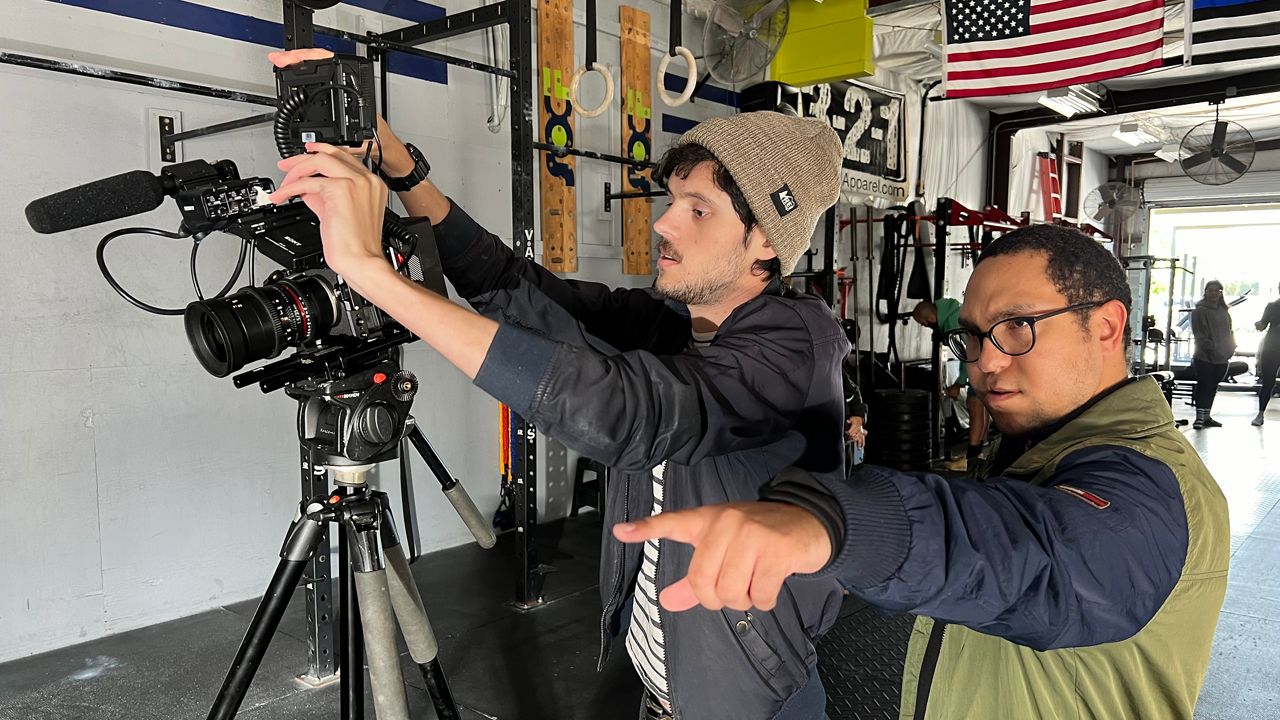ORANGE COUNTY, Fla. — In the early 1990s, Orlando was labeled as Hollywood East.
When Universal and Disney’s MGM studios opened, both were touted as working studios, where animation and live action productions were produced.
There was talk that high costs were driving productions away from California to a right-to-work state like Florida.
Today, sound stages have been converted to rides, and animation buildings no longer feature animators.
But the movie-making industry is still alive in Central Florida because of a talented workforce that directors call on for projects.
Students who attend classes in Valencia College’s Film Production Technology department get hands-on experience, professor Eric Fleming said.
“When they get out in the working world, they have done it, they feel comfortable," Fleming said. "They know the protocol, etiquette, safety and they are working professionals when they leave here.”
Inside Valencia’s $15 million film campus, movie posters of feature films and streaming shows line the walls, highlighting projects the students have worked on over the years.
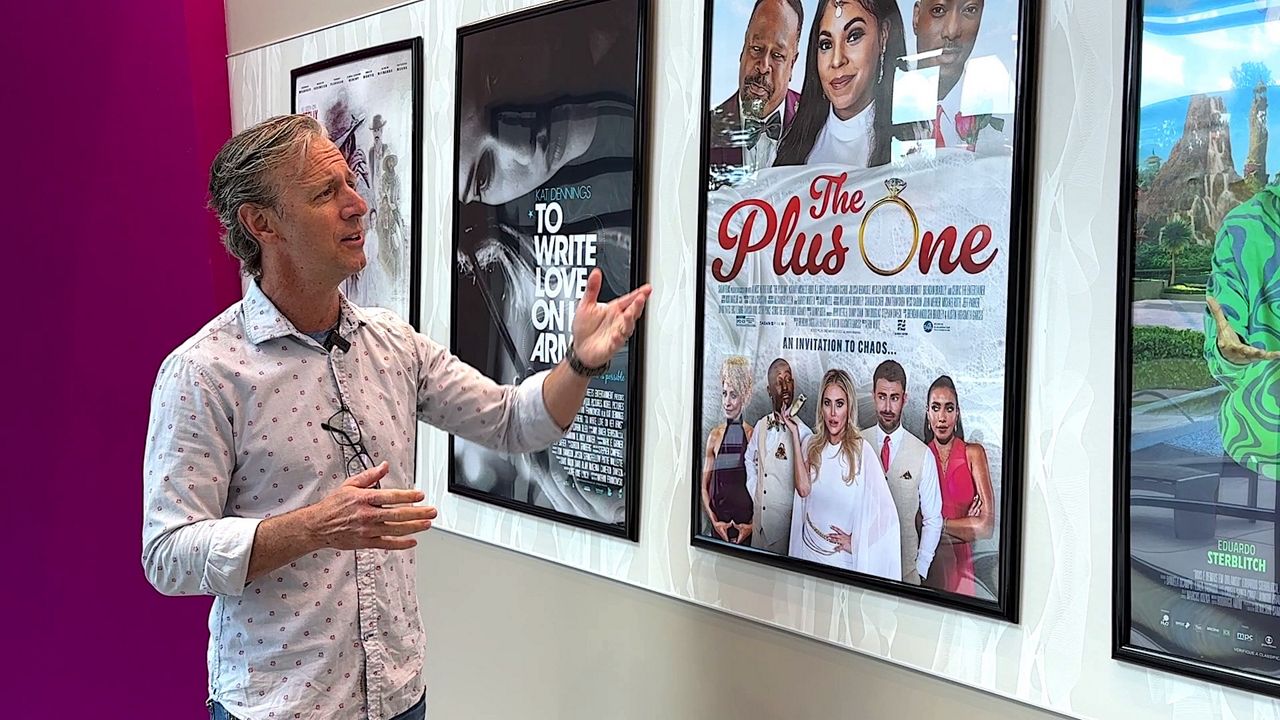
They can learn to become directors, grips and lighting and sound technicians and often hope to make their way to Hollywood, or even Georgia these days.
“I think we have completed 55 feature films in 35 years,” Fleming said.
What makes both the college and the students valuable to the movie-making industry is students work with the same types of equipment that the pros in Hollywood use to produce feature films.
Film director and Winter Park resident Michael Houston King turned to the students for his film project “Bonecrusher’s Revenge,” a science fiction thriller about a killer gator in nearby Lake Jesup.
“What is happening at Valencia College with their film department is really unique," King said. "I brought in the money. I brought in the content. And I bring in all the key professionals in making a film, and the students work under the key professionals.”
King’s primary filming location was at Jungle Adventures located in Christmas.
The animal park provided him a realistic backdrop, with the look and feel of wild Florida.
If the state really wants to tap into the billion-dollar film market, like Georgia, it needs to become more competitive, King said.
“The reason why the Florida film industry is not where it should be right now, because it comes down to that the tax credits are just not there,” King said.
As a film director, locations for movies are often selected based upon where the projects will get the most “bang for their buck,” King said.
“It all comes down to money on most movie projects,” he said.
King started his career as an actor on the soap opera "As The World Turns" and has worked for over 30 years in daytime and prime-time television.
Fleming also worked in Los Angeles before coming to Valencia and agrees with King.
“We have the infrastructure here; we have the crew here," Fleming said. "Unfortunately, filmmakers and producers will go to where there are incentives.”
Central Florida might try to get serious about the film industry once again, with the recent creation of the Orange County Film Incentive Workgroup.
The group is made up of nine working professionals in the film industry.
The goal is to attract mainly streaming projects at first, according to Roseann Harrington, chief of staff for Orange County Mayor Jerry Demings.
“Our plan right now is to bring to town projects that are $10 million or lower,” Harrington said.
The workgroup is creating a five-year plan to bring movie projects to Central Florida and seeks to use $22 million in Tourist Development Tax (TDT) funds to create tax incentives for those seeking to produce and shoot films in the area.
Six other Florida counties have film incentive programs aimed at attracting high-wage film and television production opportunities.
The workgroup's next meeting is scheduled for Nov. 18.






